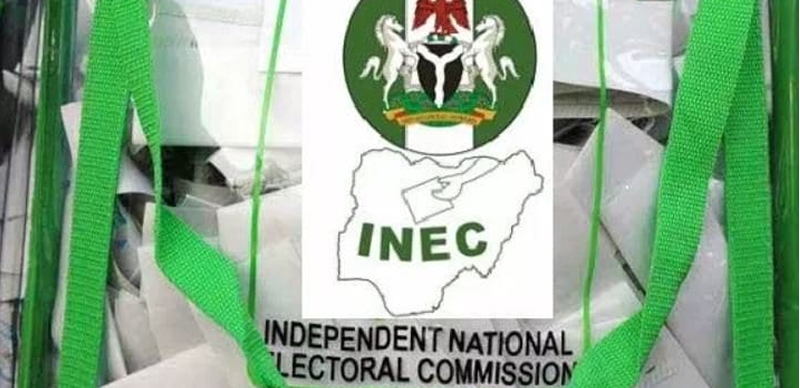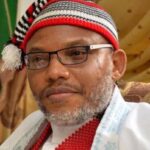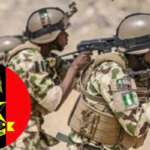
Weak punitive sanctions against perpetrators of vote-trading and increasing poverty have been responsible for frustrations to the fight against vote-buying and selling in Nigeria, the Independent National Electoral Commission and other key stakeholders in electoral process said on Friday.
They raised the concern during a policy dialogue with the theme, ‘Addressing vote-trading in Nigeria from global comparative experiences’, organised by the Electoral Forum in collaboration with the Open Society Initiative for West Africa and MacArthur Foundation.
The Deputy Senate President, Ovie Omo-Agege, represented by his Chief of Staff, Otive Igbuzor, said that vote-trading had become an unusual democratic experience, which served as a clog in the wheel of free choice and democracy in Nigeria.
According to him, the menace had become a common phenomenon in Nigeria’s political system, which, he said, had brought negative consequences to the country’s electoral system.
While observing that vote-trading only guaranteed limited, elections-bound benefits for a few, but jeopardising the long-term fortunes of the majority, Omo-Agege
called for stronger punitive sanctions against perpetrators and sustained information campaigns, community action and locally enforceable public commitments to collectively fight the menace.
He said, “To stem the ugly behaviour, everyone should be involved, both voters and contestants. It needs sustained information campaigns, community action and locally enforceable public commitments to collectively shun vote-buying.
“Punitive sanctions strategies are more likely to be successful than moralistic pleas. Political actors who buy votes should face stringent consequences. Political financing reform, and ensuring election security and ballot secrecy, are equally vital in addressing vote-selling. Most of this was taken care of in the new Electoral Act 2022 passed by the National Assembly and assented to by the president.”
The chairman of INEC, Prof. Mahmood Yakubu, represented by a National Commissioner, May Agbamuche-Mbu, said the speedy passage of the National Electoral Offences Commission and Tribunal Bill by the National Assembly would checkmate vote-buying.
The INEC boss admitted that poverty was largely responsible for the menace. He, however, expressed confidence that the tide would change soon as Nigerians were beginning to have faith in the electoral process.
Yakubu said, “We are going to intensify voter education and sensitise the people more with regards to vote-buying. People have also talked about poverty. Yes, we all know it’s poverty. But I think also that as soon as people begin to have faith in the electoral process, they will begin to see the power that they have over the people who are running for offices. And I believe that very soon, the story will change and the power will return to the people.”
The chairman of Electoral Forum Chairman, Prof. Bayo Olukoshi, said there had been a global consensus that seeking to eliminate the use of money in politics was almost impossible and waste of time because politicians would find ways to bring the use of money into the political equation.
According to him, democracies around the world had moved away from elimination to regulation of the use of money in politics, in a way to ensuring that the use of money did not corrupt integrity of the electoral process.
Olukoshi said, “So, money in politics is a global challenge, especially criminal money which are unaccounted and very difficult to trace. However, in our context, the debate around the issue of money in politics is again not an entirely new debate for those who are old enough to know the politics of the Second Republic where we saw increasingly the significant role of money as opposed to issues and ideas entering the Nigerian political space.
“But what happened in the 2nd Republic will seem to have been a child’s play compared to what we are dealing with today, in which it is absolutely clear that if you do not have a well-oiled godfather sponsoring you, or you do not have the resources of your own to oil your political machinery, you are not likely regardless of how beautiful your ideologies may be or your record of personal integrity and achievement may be, you are not likely to be able to make a dent on our political system.
“Much more than that is the fact that the use of money has gone beyond simply capturing political parties and structures to infiltrate the wider electorate.”
Speaking on the ‘Socio-political paradox of vote-trading in Nigeria: Focus on the political party primaries and the recent Ekiti and Osun governorship elections’, the immediate past Resident Electoral Commission, Rivers State, Obo Effanga, said the malaise of vote-trading required the involvement of a multiplicity of stakeholders, agencies, and groups to address it.
He traced the root of the menace to the economic imbalance and inequality in Nigeria, which if fixed, according to him, would to a large extent reduce the “number of poor people whose vulnerability currently is such that they can easily be dangled pittance in exchange for their vote.”
Effanga lamented that vote-trading is also aided and abetted by security officials at the polling unit, adding that this could happen either by failure to ensure adequate arrangement to guarantee secrecy of the vote or failure to take steps to prevent those who try to breach the rules.
“The law enforcement agencies, including the Economic and Financial Crimes Commission must ensure appropriate steps to stem or react to incidents of vote-trading, before, during, and after each election. I am not sure we yet have records of anybody picked or investigated for vote-trading during all the political party primaries this year.
“However, it is also a paradox that those saddled with the responsibility to fix the economy are also the primary beneficiaries of the vote-trade – politicians. Therefore, it would appear that it serves their purpose to keep the economy in shambles in order to sustain the vote-trading market dynamics,” he stated.
On his part, chairman of the Independent Corrupt Practices and other related offences Commission, Bolaji Owasanoye, represented by provost of the Anti-corruption Academy, Prof. Olatunde Babawale, warned that vote-buying has a tendency of frustrating and undermining the war against corruption in Nigeria.
He said the ICPC was working with INEC to tackle the menace.





